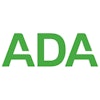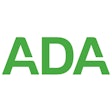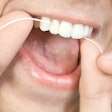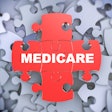
The ADA and the American Academy of Pediatric Dentistry (AAPD) want the Centers for Medicare and Medicaid Services (CMS) to expand procedures included in value-based insurance plans and continue automatic reenrollment.
On February 28, the organizations made these requests in response to CMS' proposed 2021 notice of benefit and payment parameters for the Patient Protection and Affordable Care Act, according to an ADA press release issued on March 3.
In a letter to agency, ADA President Chad Gehan, DDS, and AAPD President Kevin Donly, DDS, stressed the need for "adequate and appropriate preventive care coverage as the basis to assure value in a dental plan."
Though the organizations applauded CMS for soliciting feedback on standalone dental plans in value-based insurance, they also urged CMS to consider comprehensive preventive oral health practices in the future.
They recommend that the agency include the following procedures as covered services in all dental benefit plans:
- Prophylaxis and periodontal maintenance services
- Topical fluoride applications
- Application of pit-and-fissure sealants and reapplication as necessary
- Interim caries-arresting medicament application, such as silver diamine fluoride
- Space maintainers at appropriate developmental stages
- Oral health risk assessments
- Oral cancer screenings and education
- Preventive resin restorations
- Resin infiltrations
- Fixed and removable appliances to prevent malocclusion
- Athletic mouthguards
- Prescription or use of supplemental dietary or topical fluoride for home use
- In-office patient education, including oral hygiene instruction, dietary counseling. and tobacco cessation counseling
The organizations noted that standalone dental plans must provide 100% coverage for those preventive services without additional coinsurance for beneficiaries for them to be considered "high value." Furthermore, they noted that dental plans aren't valuable if they include arbitrary annual frequency or age limits without considering patients' needs.
"Plan design should also consider incentives to promote positive patient home care behaviors as well as incentives to support continuity of care," the organizations' presidents wrote.
Against cutting the tax credit
In response to CMS' proposal to reduce the Advanced Premium Tax Credit, the ADA and AAPD emphasized the importance of continuing automatic reenrollment for participants enrolled in plans with zero premiums.
The organizations oppose any cuts to the credit, noting that it prevents people from losing coverage due to forgetfulness or lack of knowledge. In 2019, 15% of participants who were automatically reenrolled were admitted into plans with zero premiums after application of the tax credit.
"The risk of harm to those who would potentially lose their health insurance, and oral health benefits, far outweighs any perceived benefit" from reducing the credit, the organizations wrote.
Finally, the ADA and AAPD expressed their opposition to the agency's proposal to change the way it calculates premium assistance. They believe the proposed changes would increase premiums for exchange plans and decrease enrollment for those who receive the premium tax credit.
CMS' proposal also would affect the maximum annual limitation on cost sharing. If the agency adopts the proposed changes, the new limitations would be $8,550, which is a $400 increase from 2019, for self-only coverage. The new limit for coverage other than self-only would increase by $800 to $17,100.
The ADA and AAPD believe that the increases in cost sharing also would raise costs to consumers.




















